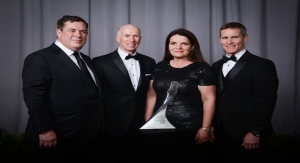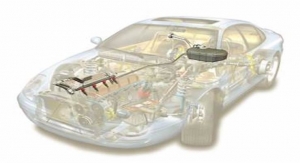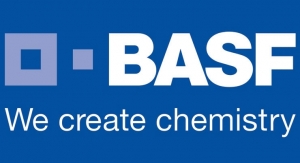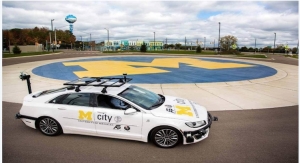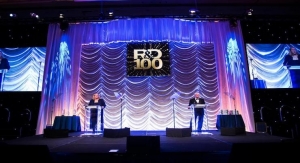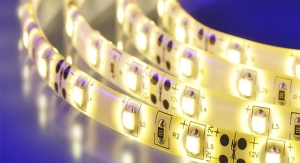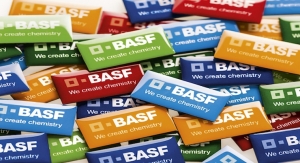05.31.18
Self-driving vehicles are the wave-front of the automotive industry future. So are the coatings that will be integral to their success, such as coatings for self-cleaning optical sensors on exteriors, as well as anti-fingerprinting coatings for interiors. Two companies are battling over which has the patent rights to novel enzymatically-functionalized coatings that achieve these critical improvements.
Reactive Surfaces has taken significant steps in securing its exclusive position as the world’s leading provider of bio-based functional coatings by successfully challenging the validity of the first three of a series of what it believes are incorrectly granted patents of the Toyota Motor Company related to enzymatic coatings via inter partes review (IPR) proceedings before the USPTO’s Patent Trial Appeal Board. In two of these IPR proceedings, Reactive Surfaces had to first defeat Toyota in the car manufacturer’s attempt to claim a defense of sovereign immunity via an association with the state-owned University of Minnesota.
These initial victories led to an uninterrupted string of 3-for-3 wins by Reactive Surfaces and sets the stage for a continuing consolidation of its technology position, according to patent agent counsel for Reactive, David Simmons, “We are happy with these decisions on their own merits for unclouding Reactive’s title to bio-based enzymatic paints, and as representative bell-weather cases for the others in which we will continue to challenge these wrongfully granted patents.”
Beth McDaniel, Reactive’s President, believes the win will catapult the company’s technology, “into its rightful legal position in not only the automotive and electronics industries, but also any industry in which a functionalized surface will bring added value to technology-hungry consumers. We were the first to develop these coatings, and the courts are agreeing with us.”
“Functional coatings using biomolecules combine the power of modern materials science with the vast potential of biotechnology - resulting in a novel technological capability in all of the surfaces that surround us daily to provide a useful function, whether it’s self-cleaning (e.g., anti-fingerprint), self-sterilizing, toxin-elimination, carbon-fixation, energy-generation, you name it. If Nature has a useful molecular function, you can now have it in your home, your car, your clothes, anywhere,” according to inventor, Dr. Steve McDaniel.
Lead attorney Mark Fassold of Watts-Guerra summarized the decisions this way, “It’s gratifying to see the patent court strike a blow for the smaller, tech-savvy David against the big-guns corporate Goliath. In these days of mega-corporate domination of many aspects of our regulatory environment, the small inventor can still come out on top if he or she is right.” Reactive Surfaces is bringing several dozen cases against Toyota and LG Electronics in the USPTO related to its bio-based functional coatings technology.
Reactive Surfaces has taken significant steps in securing its exclusive position as the world’s leading provider of bio-based functional coatings by successfully challenging the validity of the first three of a series of what it believes are incorrectly granted patents of the Toyota Motor Company related to enzymatic coatings via inter partes review (IPR) proceedings before the USPTO’s Patent Trial Appeal Board. In two of these IPR proceedings, Reactive Surfaces had to first defeat Toyota in the car manufacturer’s attempt to claim a defense of sovereign immunity via an association with the state-owned University of Minnesota.
These initial victories led to an uninterrupted string of 3-for-3 wins by Reactive Surfaces and sets the stage for a continuing consolidation of its technology position, according to patent agent counsel for Reactive, David Simmons, “We are happy with these decisions on their own merits for unclouding Reactive’s title to bio-based enzymatic paints, and as representative bell-weather cases for the others in which we will continue to challenge these wrongfully granted patents.”
Beth McDaniel, Reactive’s President, believes the win will catapult the company’s technology, “into its rightful legal position in not only the automotive and electronics industries, but also any industry in which a functionalized surface will bring added value to technology-hungry consumers. We were the first to develop these coatings, and the courts are agreeing with us.”
“Functional coatings using biomolecules combine the power of modern materials science with the vast potential of biotechnology - resulting in a novel technological capability in all of the surfaces that surround us daily to provide a useful function, whether it’s self-cleaning (e.g., anti-fingerprint), self-sterilizing, toxin-elimination, carbon-fixation, energy-generation, you name it. If Nature has a useful molecular function, you can now have it in your home, your car, your clothes, anywhere,” according to inventor, Dr. Steve McDaniel.
Lead attorney Mark Fassold of Watts-Guerra summarized the decisions this way, “It’s gratifying to see the patent court strike a blow for the smaller, tech-savvy David against the big-guns corporate Goliath. In these days of mega-corporate domination of many aspects of our regulatory environment, the small inventor can still come out on top if he or she is right.” Reactive Surfaces is bringing several dozen cases against Toyota and LG Electronics in the USPTO related to its bio-based functional coatings technology.


